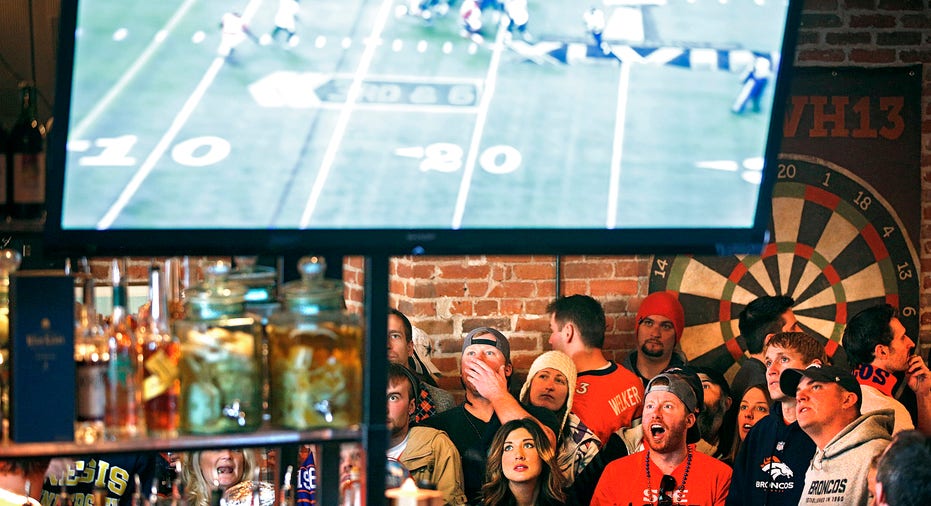Why Big Brands Are Skipping Super Bowl 50

The Super Bowl appears to have lost a lot of its gusto for advertisers, and major brands are instead leaning on the digital world to reach consumers.
Thirty-second commercials during Super Bowl 50 were going for a whopping $5 million apiece, according to the game’s broadcast partner this year, CBS (NYSE:CBS). That’s up from the $4.5 million that advertisers paid a year ago. At the same time, companies are experimenting with different methods of reaching consumers, from social media to Web videos.
“You have to go back a few years to find when it was really worth its money,” said John Immesoete, chief creative officer of marketing firm Epsilon. “The landscape has been changing over the last several years. If you listen as a civilian, not an ad executive, you don’t hear a lot of enthusiasm for Super Bowl ads.”
GoDaddy (NYSE:GDDY) is one company going digital for the Super Bowl. The web-hosting company, a staple of the Super Bowl TV broadcast for the past 11 seasons, told FOXBusiness.com on Thursday that a 30-second GoDaddy ad will run during CBSSports.com’s live stream of the game.
“The Super Bowl TV broadcast has been a great platform for our domestic brand building,” GoDaddy Chief Marketing Officer Phil Bienert said in an email. GoDaddy is moving beyond the “megaphone” of Super Bowl ads to target a specific audience, he added.
Sitting Out
Other stalwarts of Super Bowl advertising will be noticeably missing from the big game. McDonald’s (NYSE:MCD), which ran an ad during Super Bowl XLIX after years of only appearing on the pre-game show, has returned to the sidelines this year. There’s no Burger King, either. Even car brands Ford (NYSE:F) and Mercedes-Benz won’t be seen.
Immesoete, who has worked with McDonald’s, Anheuser-Busch (NYSE:BUD) and Coca-Cola (NYSE:KO), noted that even NFL sponsor PepsiCo (NYSE:PEP) will have a fairly limited presence during commercial breaks. Pepsi remains the halftime sponsor, but just one ad will air. The company is spending its dollars on two additional ads, one for Mountain Dew and the other for Doritos.
“I was really surprised how many of the big brands, and things that really fit, have avoided it altogether,” Immesoete said. He believes apparel and sports-drink brands are missing out on a big opportunity.
A Ford spokesperson told FOXBusiness.com that the Blue Oval will focus on other marketing initiatives in lieu of Super Bowl 50.
“While the Super Bowl allows advertisers to reach a large audience at one point in time, this year’s event does not align with our plans but we do continue to be focused on reaching consumers through multiple channels and platforms, including digital and social platforms,” the spokesperson said.
Digital a Better Value?
GoDaddy’s live-stream commercial is part of a larger digital ad campaign tied to the Super Bowl. GoDaddy has partnered with Facebook’s (NASDAQ:FB) Sports Stadium, and the brand will be engaged on other social media platforms, including Instagram.
“This online approach is a great example of how we are going about the execution of personalized, data-driven marketing strategy,” Bienert said.
GoDaddy has shifted its marketing strategy after routinely grabbing attention with controversial Super Bowl ads. Back in 2014, GoDaddy created an ad in which a woman quit her job to start a small business. It was a significant departure from prior campaigns starring NASCAR driver Danica Patrick and supermodel Bar Rafaeli, among others. The company’s new goal is to inform viewers, especially small business owners, about GoDaddy services.
New Strategy
“GoDaddy’s marketing strategy has evolved from high-level domestic brand awareness (we currently have 83% aided brand awareness in the U.S.) to a personalized, data-driven approach aimed at a global audience,” said Bienert, who also left the door open to returning to the Super Bowl broadcast in the future.
Immesoete noted that companies find it easier to score a digital ad campaign, saying it’s hard to measure the value of traditional advertising. “It’s a lot easier to find out if you didn’t do well,” he said.
Anheuser-Busch normally sets a goal of winning USA Today’s Ad Meter poll, and a win was considered a positive return on the beer maker’s hefty investment in a Super Bowl ad. Budweiser won the 2015 survey with its “Lost Dog” ad.
“It’s pretty easy for a [chief marketing officer] to say, ‘I’d rather just avoid it,’ and I think that’s really unfortunate,” Immesoete said of the Super Bowl. “It’s such a great format for a company like McDonald’s and other great, iconic American brands.”



















